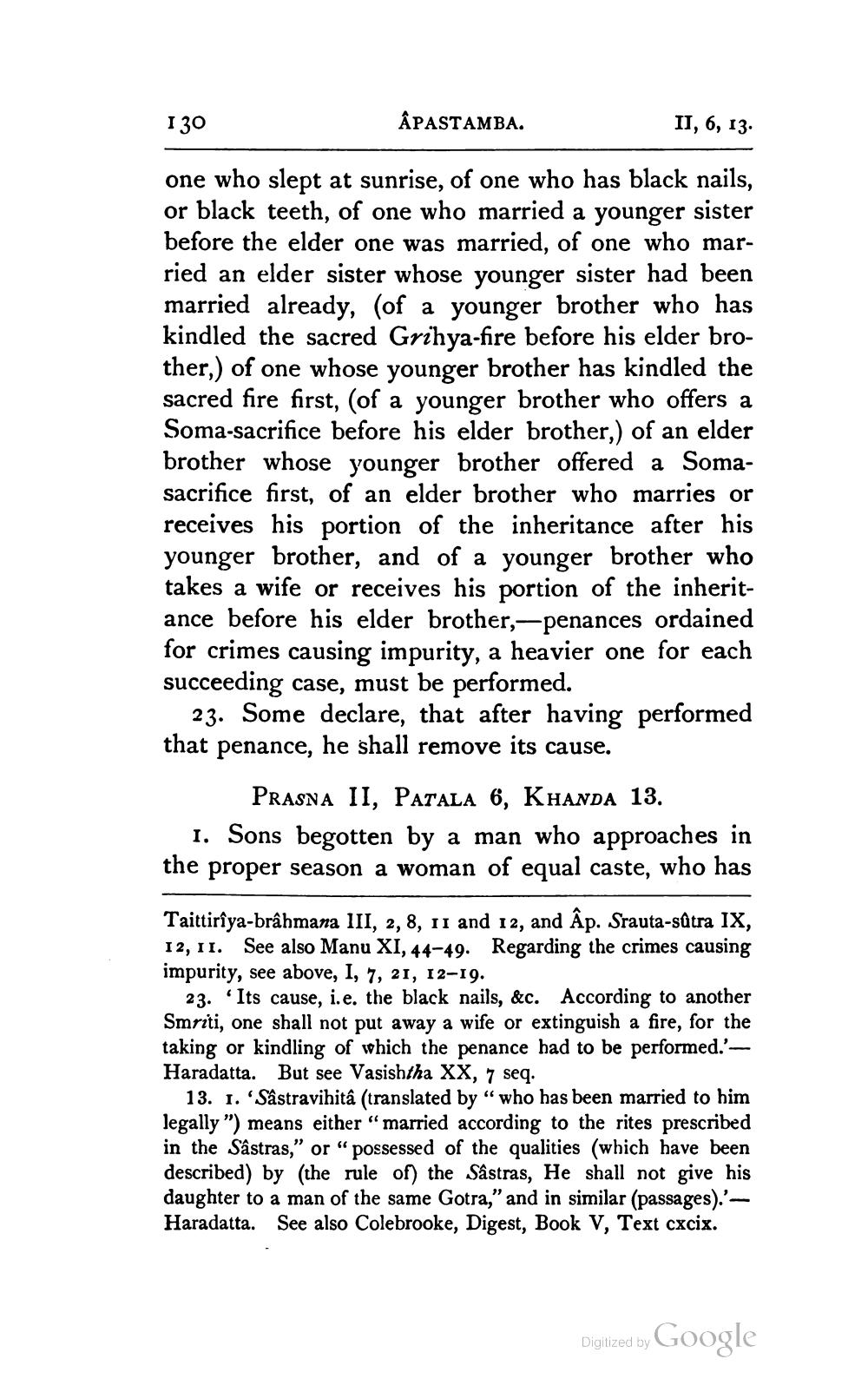________________
130
ÂPASTAMBA.
II, 6, 13.
one who slept at sunrise, of one who has black nails, or black teeth, of one who married a younger sister before the elder one was married, of one who married an elder sister whose younger sister had been married already, (of a younger brother who has kindled the sacred Grihya-fire before his elder brother,) of one whose younger brother has kindled the sacred fire first, (of a younger brother who offers a Soma-sacrifice before his elder brother,) of an elder brother whose younger brother offered a Somasacrifice first, of an elder brother who marries or receives his portion of the inheritance after his younger brother, and of a younger brother who takes a wife or receives his portion of the inheritance before his elder brother,-penances ordained for crimes causing impurity, a heavier one for each succeeding case, must be performed.
23. Some declare, that after having performed that penance, he shall remove its cause.
Prasna II, PATALA 6, Khanda 13. 1. Sons begotten by a man who approaches in the proper season a woman of equal caste, who has
Taittirîya-brâhmana III, 2, 8, 11 and 12, and Âp. Srauta-sûtra IX, 12,11. See also Manu XI, 44-49. Regarding the crimes causing impurity, see above, I, 7, 21, 12-19.
23. Its cause, i.e. the black nails, &c. According to another Smriti, one shall not put away a wife or extinguish a fire, for the taking or kindling of which the penance had to be performed.'Haradatta. But see Vasishtha XX, 7 seq.
13. 1. 'Sastravihità (translated by “who has been married to him legally”) means either "married according to the rites prescribed in the Sâstras," or "possessed of the qualities (which have been described) by (the rule of) the Sâstras, He shall not give his daughter to a man of the same Gotra," and in similar (passages).'Haradatta. See also Colebrooke, Digest, Book V, Text cxcix.
Digitized by Google




